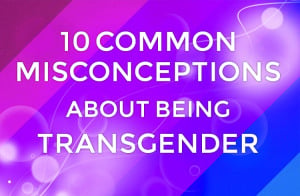
Two people sitting across from one another. One looks visibly upset – the other reaches out to comfort them with a distant expression.
I’ve suffered from depression for as long as I could remember, but that’s difficult for me to say out loud – not because I’ve ever shied away from sharing my life experiences, but because part of me believes that I’m making my depression up.
For many years, well-intentioned friends and family would unknowingly gaslight me, telling me in numerous ways that I wasn’t actually depressed. Gaslighting, for those who don’t know, is the practice of psychologically manipulating someone so that they question their own sanity. I’d lament about my feelings, yet my closest friends were quick to tell me that if I just changed my attitude, my depression would go away.
Tragically, my loved ones truly thought they were helping. My guess is that they were fearful of validating my feelings – something I desperately needed them to do – because they thought validation would exacerbate my negative moods. Perhaps they were afraid they’d be indulging my condition.
Their solutions, whether they realized it or not, generally consisted of encouraging me to shove all my feelings deep down inside. To them, they weren’t gaslighting me. They were merely demonstrating “tough love.”
But their tough love approach never helped. In fact, it has caused irreparable damage to my psyche to the point where I no longer believe my own feelings. Even sitting here, with thousands of negative thoughts flooding in, I still think I can snap out of it with positive thoughts if I were just strong enough to do so.
If my friends and family knew the negative affects their tough love would have on me, I don’t believe they ever would’ve utilized their tactics.
Instead, they could use more compassionate and validating language which would likelier achieve their desired outcomes.
Maybe you’ve tried your own version of tough love, and it’s time to reevaluate your approach, too. Here are some tough love phrases that gaslight people with depression, and ways they could be substituted with more empathetic language.
1. ‘Get Over It – You Have a Great Life!’
Speaking openly about depression makes many people feel uncomfortable. Folks aren’t accustomed to dealing with people who experience and admit to their raw emotions. Their impulse when they’re met with real emotions is to shut down the conversation before it can even get started.
They do this by reminding the depressed party about all of the good fortune they have in their lives. The undertone of what they’re saying is, “You should be more grateful,” but what they really mean is, “Please stop being depressed because I don’t like how it makes me feel.”
This could be for a number of reasons. It could be general discomfort, because some people feel uncomfortable with what they deem is “oversharing.” Likelier though, it’s because they would rather not see someone they care about having such a rough emotional time.
The impulse to want to “fix” the problem is partially due to people’s perceptions that emotions are “weak” while “logic” is strong. While an overabundance of emotions isn’t always useful, completely ignoring one’s emotions will definitely be detrimental to one’s health.
Besides, “logic” cannot operate without emotions behind them, because we, at our essence, are emotional creatures.
It’s better to be honest with your emotions if you don’t know how to help a depressed person.
Before delving right into “problem-solving” mode, it’s much more helpful to simply say this: “I’m sorry for what you’re going through.”
By admitting this simple emotion, you introduce solidarity instead of condescension, and it serves the same function as trying to lift someone’s spirits. The difference is, the language is more empathetic and less judgmental.
Sometimes, all people really need is a little bit of compassion, sympathy, and empathy. This may or may not stop the depressive spell, but at least you can take comfort knowing that you shared a connection with someone you care about, and you made them feel less alone.
This is much more useful than unintentionally invalidating someone’s experiences, making them feel even worse than before.
2. ‘Here’s What You Should Do’
Reiterating one of my previous points, the inclination to problem-solve is reflexive in many people. When they hear that someone is depressed, they want to offer advice immediately.
While some of the advice can be useful – such as encouraging yoga, exercise, meditation, etc. – it’s extremely condescending to give advice before any type of validation.
Without realizing it, when somebody offers unsolicited advice, they’re implying, “You wouldn’t be depressed if you tried harder not to be depressed.”
What they don’t realize is that sadness is different from depression. Sadness, in actuality, is a healthy human emotion that happens as a reaction or reactions to events.
Depression, on the other hand, is a chemical imbalance which doesn’t necessarily require a trigger, and it is much more pervasive than temporary sadness.
Everybody feels sadness at times, but not everybody has depression.
So the intention of offering unsolicited advice, telling depressed people that “this is what you should do,” is to give someone the tools to hopefully dissipate depression. But since depression doesn’t necessarily have a cure, these pieces of advice may ultimately be futile.
Instead of offering advice at the very outset, you can instead say this:
“Let me know if there’s anything I can do to help.”
By using this verbiage instead, you validate someone’s experiences and emotions by letting them know that you feel for their pain and that you would like to help. It’s likely that there really isn’t anything you can “do,” per se, but the offer is always nice to hear. Sometimes, it’s best just to offer the support and, if need be, to listen.
More importantly, by offering to help instead of offering advice, there’s no presumption that you know the solution on how to get better, and there is no pressure from you that you want them to get better on your timeframe. You aren’t implying that there are solutions, because advice implies that there are cures that depressed people simply aren’t using, which, once again, is gaslighting someone and invalidating their feelings.
You hopefully take off some of the pressure, and you let them know that you’ll be there for them no matter what.
3. ‘What Happened? Why Are You Depressed?’
This is another seemingly innocuous phrase used on people who are depressed. The reason why it isn’t a harmless question is because by asking someone “what happened,” you are implying that a trigger must’ve caused the depression.
This implies that a trigger is required to spark depression and/or depressive spells. But that’s not how depression works for everyone. For many people, depression comes out of nowhere.
I’ve spent countless hours trying to rack my brain during depressive spells. “Why do I feel this way?” I’d ask myself, instead of accepting the reality that I feel the way I feel.
After years of others gaslighting me, I unknowingly started gaslighting myself. Many times I’d feel incapacitated and I’d punish myself further with self-harm, both physically and mentally.
“You shouldn’t feel this way. Nothing happened for you to feel this way.”
Instead of asking somebody “what happened,” the same good intentions can be accomplished by saying this:
“I’m sorry that you’re depressed, and there’s nothing wrong with you for feeling this way.”
The reason why this is important to say is because there are many stigmas and a lot of shame associated with having depression. Depression is horrible enough to experience on its own, and adding shame to it is an unnecessary burden.
You are helping minimize the shame and reminding them that while their experiences are difficult, their reality is also valid, and their worth as a person stays intact no matter how many depressive spells they have.
4. ‘You Should Get Up and Do Something!’
What many people don’t realize is just how debilitating depression can be. Last year, I went back to look at my calendar, and I realized that for a full year, I had called out sick from work once a month around the same day every month. Those days, my depression was so severe that I couldn’t even get out of bed.
When I told people that I was suffering from debilitating depression, their inclination was to tell me to get up and leave the house. Take a walk around the neighborhood. Go to the store. Socialize with friends.
While I appreciate their intentions, I always felt like they didn’t really believe me when I told them about how horrible these spells can get. They would try to relate to me with stories about how sad they’ve felt at certain instances in their lives and how, by leaving the house, their sadness went away.
The thing is, I completely understood what they were trying to say. They were trying to tell me that by staying cooped up in my apartment, I was making my depression worse. There may be a grain of truth to this, but they were missing the point entirely.
Depression is more than a feeling. It can be an all-encompassing heaviness that has real physical manifestations, such as lethargy, periodic crying, headaches, and nausea. What they’re telling me is that I can overcome “sadness,” and this was insulting because there have been many instances when I had gone to work while being sad, or had forced myself to leave the house when I didn’t feel well.
Once again, depression and sadness are not the same things, and they thought that they had the magic cure for my experiences.
Instead of trying to make someone “do” something, you can instead say this: “Try to be patient with yourself.”
If people’s intents are to speed up the recovery process, it may seem counterintuitive to tell someone to be patient with themselves. It goes against our “tough love” culture which tells us that any sign of vulnerability is a form of weakness. Patience and self-care are dismissed as passive options for weak people.
The reality is, the only times I’ve ever been able to power through depressive spells has been through patience and self-care. By taking the pressure off myself that I “had” to get better as soon as I could, I was able to slow down, breathe, and process my depression at my own pace.
I didn’t have to worry about a friend of mine making me feel even worse for being debilitated, as if I didn’t already feel horrible and useless enough. The self-criticisms only kept me in bed for even longer, because I spent so much time trying to talk myself into believing that I should be “getting better” more quickly if I were more physically proactive.
Sometimes, that just isn’t possible.
You should try to be compassionate when communicating with someone who suffers from depression, because chances are, they’re finding it hard to feel compassion for themselves. Don’t make it even more difficult.
***
I believe that although depression doesn’t necessarily have a “cure,” it can be more manageable depending on the support people receive from their friends, family, and loved ones. Now that I’ve done away with people who utilize “tough love” tactics, my spells are absolutely easier to cope with than they ever have been.
Depression is still crushingly difficult, but the despair doesn’t feel quite as heavy, because my current friends don’t invalidate my experiences.
By using more compassionate language, they make me feel less alone.
Conversely, tough love always made me feel even lonelier, more ashamed, and burdensome on everybody in my life. I firmly believe that most people don’t want their depressed friends and family to feel this way, and hopefully, by providing more compassionate language in place of “tough love,” people can feel validated and loved – and they can feel less alone.
[do_widget id=’text-101′]
Robin Tran is a Contributing Writer for Everyday Feminism. She is a standup comedian and blogger, and she holds a BA in English from UC Irvine. In early 2015, Robin came out as transgender woman and has written about her firsthand experiences ever since. She has performed at the Improv, Mad House Comedy Club, and the Comedy Palace, and her articles have been published in xoJane and Time.com.
Search our 3000+ articles!
Read our articles about:
Our online racial justice training
Used by hundreds of universities, non-profits, and businesses.
Click to learn more




















